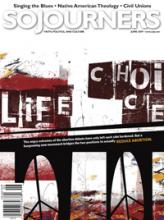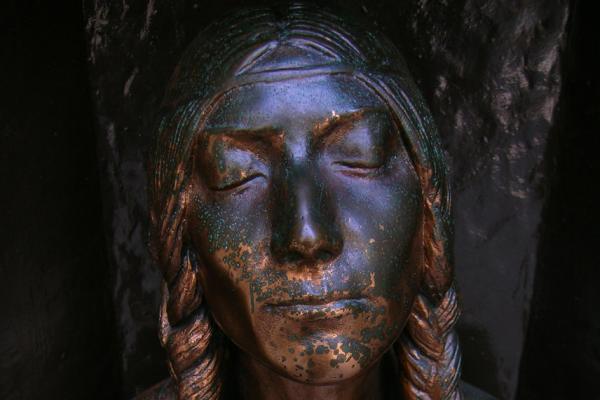SEVERAL HUNDRED PEOPLE stand on the grass waiting to enter the auditorium for the opening service of a Christian conference. People are holding bold, pre-printed signs (Teach for America, Evangelicals for Social Action, New York Theological Seminary) for the processional.
Meanwhile Richard Twiss has found a piece of scrap paper, because he doesn’t have a sign. He writes something with a ballpoint pen, then shows it to the four friends he’s standing with who are, like him, Native American evangelical theologians involved in ministry.
The others smile. The sign says: “Fighting Terrorism since 1492.”
It’s a cry for justice. It’s a serious reaction to the pain their communities continue to feel. It’s a reaction to all the other streams of “justice work” around them. It’s subversively funny. And it’s ballpoint pen on scrap paper, so it seems characteristic in another way: As they process in behind the sign over Twiss’ head, nobody in the auditorium can read what it says.
“It’s a problem of being heard,” says Randy Woodley, one of the theologians. “I feel like 500 years ago, maybe God did bring the white [people] over. But it was supposed to be something mutual, where we learned from each other. Instead the white [people] conquered, helped out by their understanding of Christianity. Five hundred years later, we ask ourselves, now are people ready to listen?”
Read the Full Article

